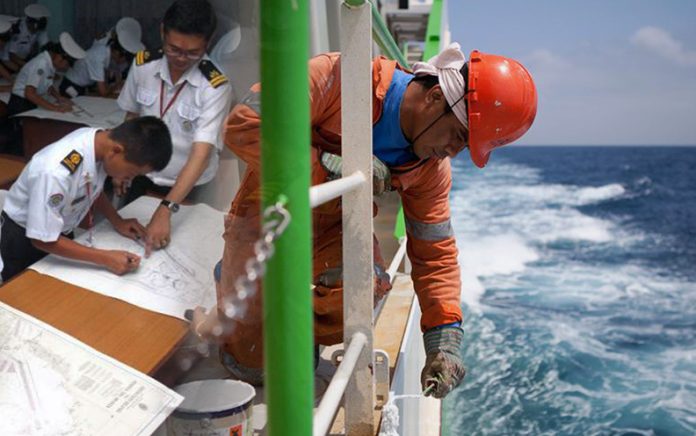-
The proposed law that aims to safeguard the rights of Filipino seafarers is still “under further review,” according to Presidential Communications Office Secretary Cheloy Garafil
-
The Magna Carta of Filipino Seafarers was one of three measures President Ferdinand Marcos Jr. was expected to sign on February 26, but only two measures pushed through
-
The magna carta will specify the rights and ensure the welfare of Filipino seafarers
Malacañang is still reviewing the Magna Carta of Filipino Seafarers, according to Presidential Communications Office Secretary Cheloy Garafil.
The measure, which aims to safeguard the rights of Filipino seafarers, was widely believed to be one of three measures that President Ferdinand Marcos Jr. was to sign into law on February 26. In the end, only Republic Act No. (RA) 11981 or the Tatak Pinoy Act and RA 11982 or the Expanded Centenarian Act were signed.
Garafil told media the Magna Carta of Filipino Seafarers bill is “still under review”; she did not elaborate.
Marcos had earlier certified as urgent Senate Bill No. 2221 or An Act Providing for the Magna Carta of Filipinos Seafarers to address recurring deficiencies in the domestic laws pertaining to the training and accreditation of thousands of Filipino seafarers which endanger their employment in the European market in particular, and the global maritime arena, in general.
The measure will specify the rights and ensure the welfare of Filipino seafarers. It includes a reintegration program, grievance system, and social welfare benefits for seafarers.
The Senate last December ratified the bicameral conference committee report on the proposed law. The report is a reconciled version of SB No. 2221 and House Bill No. 7325.
Under the reconciled bill, Filipino seafarers onboard are entitled to 3.5 calendar days of paid annual leave per month of employment.
The proposed legislation also establishes shipboard training, which will be monitored and regulated by the Maritime Industry Authority.
“This ultimately addresses the repeated concern on the credentials of our seafarers and their compliance with the STCW [Standards of Training, Certification, and Watchkeeping for Seafarers],” Senate Committee on Migrant Workers chairperson Raffy Tulfo earlier said, adding that it will fulfill the country’s commitment to the European Maritime Safety Agency (EMSA).
The European Union (EU) had in the past issued warnings of a potential ban on Filipino maritime workers due to the Philippines’ repeated failures to pass the EMSA’s evaluation for the past 16 years.
In March 2022, however, the EU acknowledged the country’s efforts and continued recognizing Philippine-issued certificates for seafarers.
Tulfo highlighted a “win-win” solution in the bill for shipping companies and seafarers seeking disability claims through a bond execution.
“In the bicam version, the said bond would be posted only for the disputed portion of the award. And if the seafarer ultimately prevails in the case, he will be reimbursed with the cost of putting up the bond,” said Tulfo.
The provision is supported by Associated Marine Officers’ and Seamen’s Union of the Philippines, the largest union of seafarers in the country, he added.





